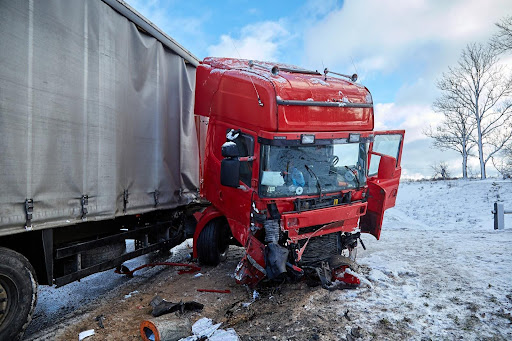Understanding Louisiana’s Comparative Fault Laws In Truck Accidents

Trucking accidents are stressful and often result in confusion regarding who is responsible for the crash. In Louisiana, comparative fault laws are critical to determining who is at fault and how much compensation you can recover for your injuries and damages. At Louisiana Law Lady, Lauren Pilie leverages years of experience with comparative fault laws to build the strongest claim possible for our clients. To learn how Lauren Pilie can help you recover the compensation you deserve, consider scheduling a free consultation at (504) 470-3511.
What Is Louisiana’s Comparative Fault Rule?
Each state uses a different system to determine fault in personal injury claims. Louisiana is one of the few states that uses a comparative fault system. Under comparative fault laws, each party’s level of fault is compared and damages are awarded proportionally based on the degree of negligence. This law is outlined in Louisiana Civil Code 2323, which states that the amount of potential compensation for a trucking accident will be reduced in proportion to the percentage of fault attributable to the person who suffered the injury, death, or loss.
In other words, an individual can recover damages even if they were 99% at fault for the accident. For instance, if a person was rear-ended by a speeding truck, but failed to use their signal when changing lanes, that person may be considered to be 30% at fault. Here, the individual would be able to recover 70% of the damages assessed in their claim.
What Are the Challenges in Determining Fault?
Determining fault in trucking accidents presents unique difficulties. Liability in a trucking accident claim is not always black and white, and the process of determining who is to blame can be tumultuous.
Managing the Aggressive Tactics of Insurance Companies
Trucking companies and the insurance providers that work with these companies often use aggressive and strategic tactics to minimize their liability. Some of the most common tactics that insurance companies use to fight claims include:
- Offering quick settlement offers. Insurance providers often try to offer lowball settlements immediately after an accident, capitalizing on the fact that victims are overwhelmed and unsure of how to proceed with their recovery. Accepting a quick settlement is tempting, particularly if you have pressing financial concerns and mounting medical bills, but these offers rarely consider the full extent of your damages.
- Disputing liability. Insurance companies may try to argue that the policyholder was not entirely at fault, or that you were partially liable for the accident. Given Louisiana’s comparative fault laws, insurance providers have the opportunity to reduce the proportion of damages that you can recover.
- Downplaying the severity of your injuries. It is not uncommon for insurance providers to argue that your injuries are pre-existing, or request access to your medical records to argue that your injuries are not as severe as you say. At LA Law Lady, Lauren works tirelessly to ensure that insurance companies do not use your medical history against you during the claims process.
- Delaying the claims process. Insurance companies may delay the process to frustrate the trucking accident victim, perhaps by taking too long to respond, requesting unnecessary paperwork, or intentionally dragging out the investigation of the accident. If the statute of limitations – which is now two years in Louisiana – expires before the end of the claims process, you may lose the ability to recover damages.
Understanding the Role of Truck Drivers, Trucking Companies, and Third Parties
Trucking accidents often involve several different parties, all of which may share some portion of the fault in Louisiana’s comparative fault system. While truck drivers are at the front lines of collisions, trucking companies, maintenance providers, and cargo-loading companies often play a role behind the scenes.
For example, a trucking company may turn a blind eye to hours of service regulations, resulting in driver fatigue. In other situations, a cargo loader may load the trailer improperly, causing shifts on the road. Here, the cargo loader can be held responsible. Fortunately, under Louisiana’s comparative fault laws, it is possible to hold all responsible parties accountable for their role in the accident.
Contact an Experienced Louisiana Trucking Accident Lawyer at LA Law Lady Today
If you are determined to be even partially at fault in a comparative fault state like Louisiana, you may have your compensation reduced based on your percentage (or degree) of fault – a hard truth that could leave you struggling with out-of-pocket expenses, despite having automobile insurance.
At Louisiana Law Lady, Lauren Pilie has years of experience handling these complex cases. She can help break down Louisiana’s comparative fault laws and ensure that clients are not left in the dark during the claims process. To schedule your free case review, consider contacting Lauren at (504) 470-3511 today.